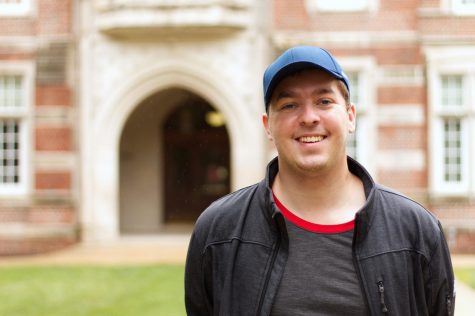Interfaith Fellows host panel on the beginning of life
March 28, 2019
Simpson College’s Interfaith Fellows presented their findings about various religions’ perspectives on when life begins during a panel discussion in Pioneer Hall last Thursday.
The panel focused on the modern viewpoints of religions regarding the beginnings of life rather than the historical context of those religions. Panel members said it was often difficult to find a unified modern viewpoint for each religion, and even more difficult to find a historical perspective that couldn’t be questioned.
Led by Professor Maeve Callan, students from the Interfaith studies class spoke on the beliefs of religions such as Judaism, Hinduism, Buddhism, Sikhism and Witchcraft. The discussion focused on when life truly begins according to each religion, and the varying views modern religions have on abortion.
Callan began by stressing that the discussion was based on understanding, not agreement, between different religions interpretations on the beginning of life.
She also explained that the Interfaith panel had extensively researched the religions they were discussing, and they met with and interviewed religious leaders to get a community perspective on the issue.
Abortion and the beginning of life are currently a very controversial topic in U.S. politics, and Callan explained that the official stances of religious groups do not necessarily represent all those within that religion. There are also conflicting viewpoints on this issue within the Abrahamic religions.
“According to Judaism, personhood begins at birth. It’s really when you take your first independent breath. That’s when you become a person,” Callan said. “It’s morally permissible, and moreover if the mother’s life or physical or mental health is at risk, abortion is not only permitted, it is mandated. It is much more important to save the mother’s life than to save the fetus’ life.”
Interfaith panel member Cheyenne Wiederholt spoke on the beliefs of Sikhism, a religion that she says is often misjudged.
“One thing when I interviewed a Sikh that they wanted to let others know is that they’re a very welcoming and inclusive religion,” she said. “Sikhs are often mistaken for Muslims. They do experience quite a bit of violence.”
Wiederholt also explained that Sikhs believe in one God, similar to the Abrahamic religions in that regard.
Sikhs also emphasize the equality of men, women and children and generally forbid abortion, Wiederholt said.
“Conception is seen as the creation of God, and they believe God resides in everyone, so abortion is aborting God, in a way,” Wiederholt said. “However, aborting female embryos is a common practice in India, where Sikhism is really popular.”













